Quick intro this time, because I don’t really know much about the Atari ST, but there’s a huge trove of public domain software for it from the archives of Page 6, as well as magazine archives!
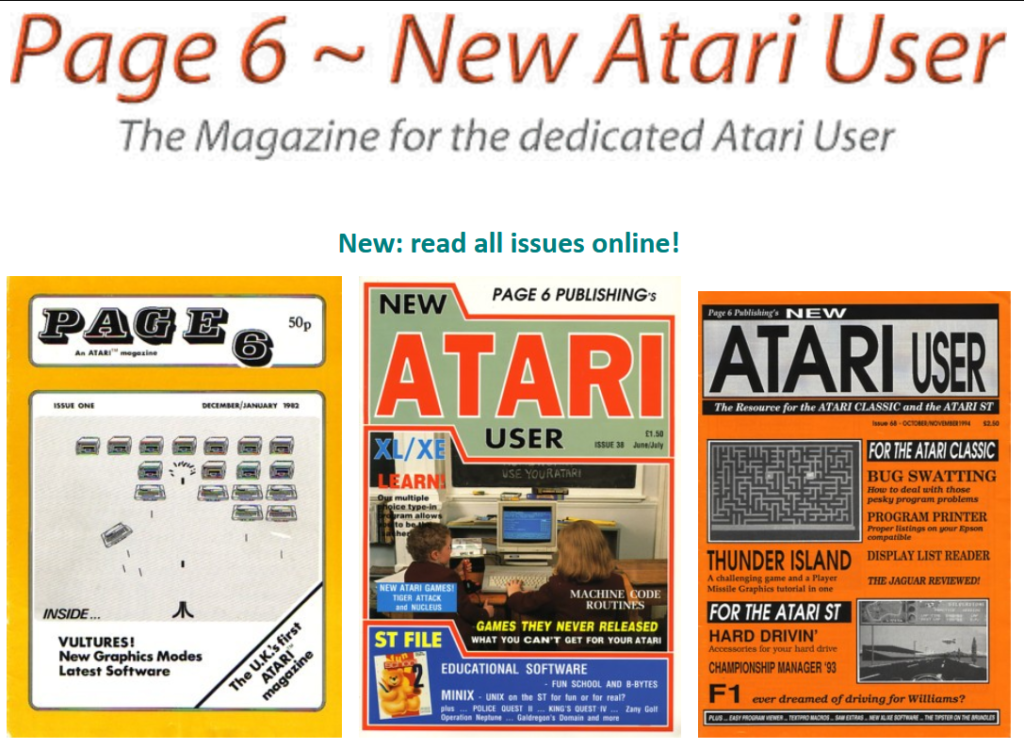
Page 6: Atari ST software collection – magazine archives
The Flipside of Gaming
Quick intro this time, because I don’t really know much about the Atari ST, but there’s a huge trove of public domain software for it from the archives of Page 6, as well as magazine archives!

Page 6: Atari ST software collection – magazine archives
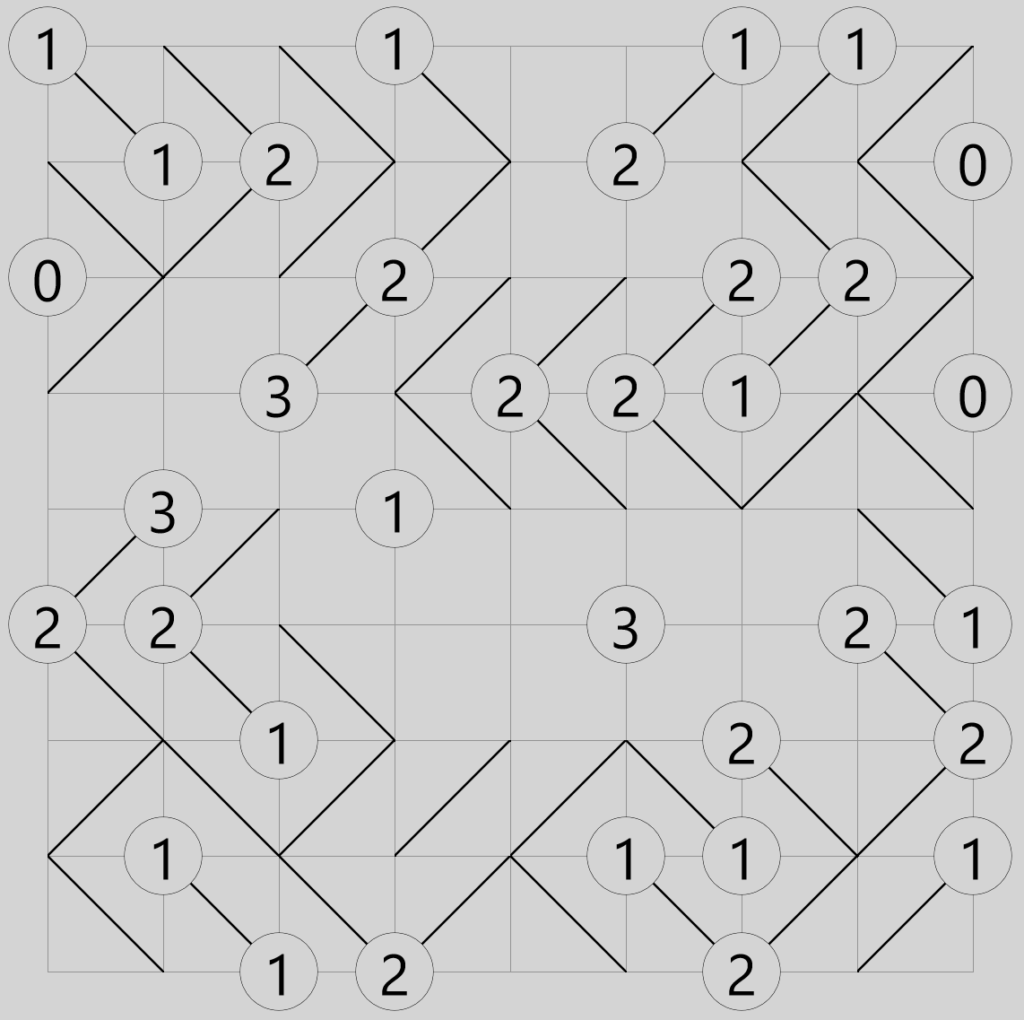
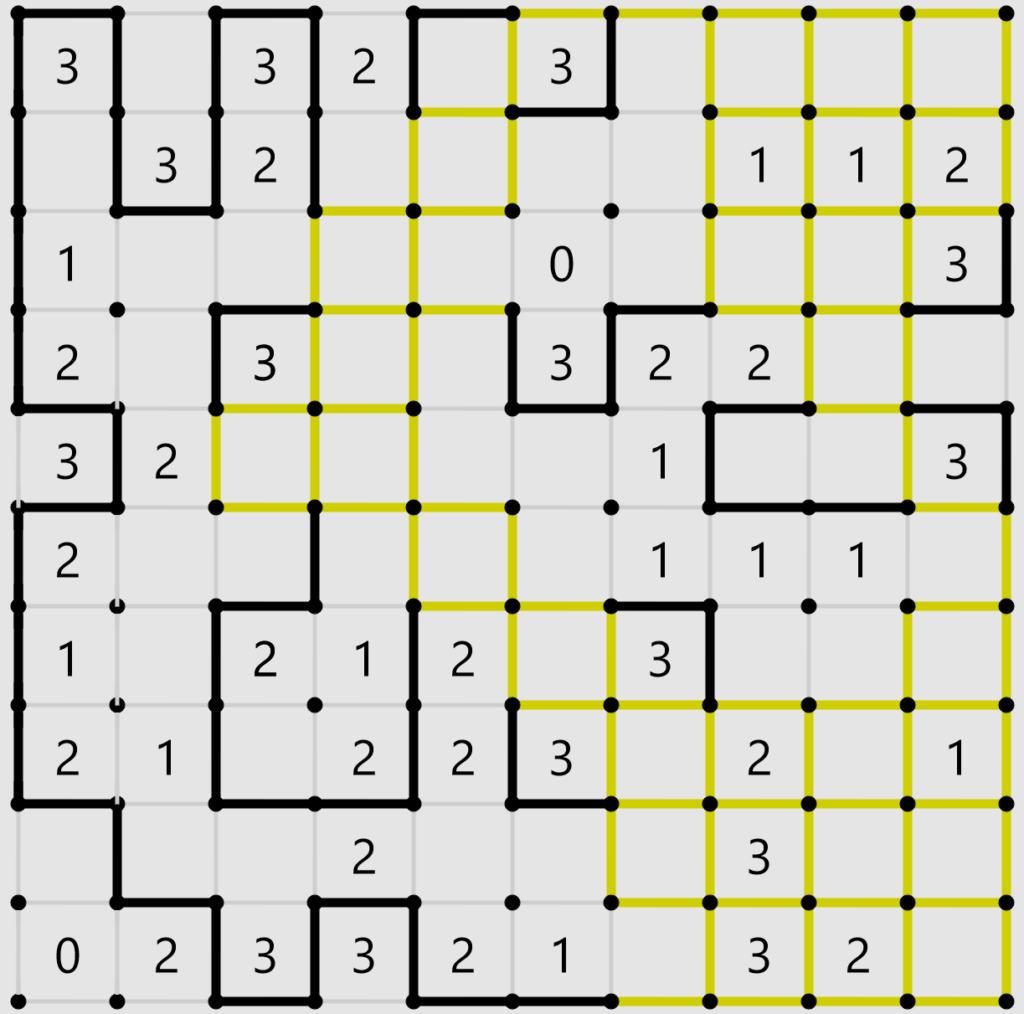
I got a treat for you people today, a genuine treasure of the internet, a collection of forty computer-generated puzzles of wide-ranging types, from Sudoku (called “Solo” because of trademarks) to Minesweeper. And they’re not only all open source and free, they’re free for many platforms. Not all the puzzles are yet available for all platforms, but it’s continually being worked on, with new puzzles added from time to time. It has been for nineteen years; when it got started it only had five puzzle types. It’s one of the best things out there, and I’m amazed it’s not better known generally.
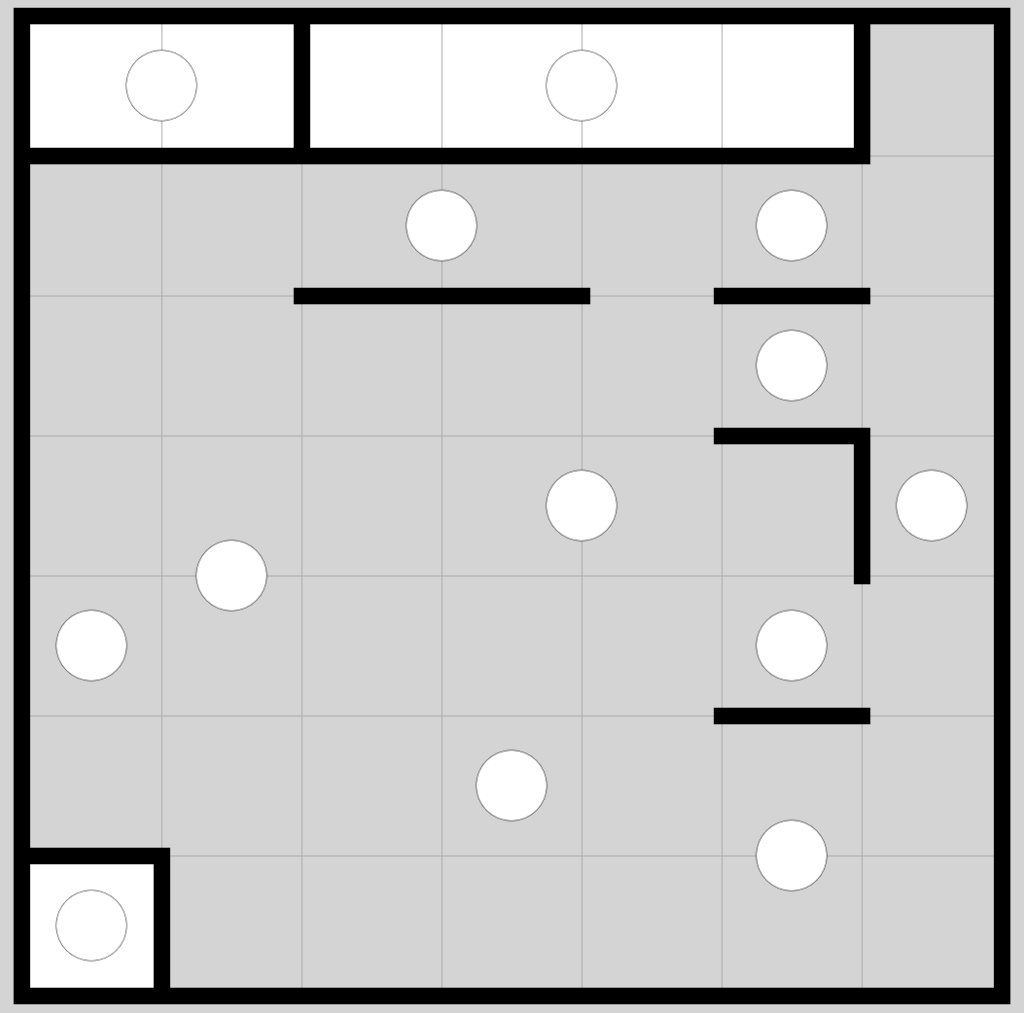
I can’t overstate what a wonder this collection is. All the puzzles are their own executable, if you don’t just play them on the web anyway. Each one of these puzzles offers many hours of happy puzzling. My own favorites are Loopy, Slant, Bridges, Dominosa, Galaxies, Net and Untangle. Most of the puzzles are of a type that should be familiar to fans of the Japanese puzzle magazine Nikoli, but they’re all randomly generated, and playable on multiple difficulty levels.
If the name Simon Tatham sounds familiar, he’s the guy who also created and maintains the popular networking tool PuTTY.
Here’s the links, all of these are free:
Simon Tatham’s Portable Puzzle Collection main site, which has implementations for Java, Javascript and Windows
Here’s some other HTML implementations
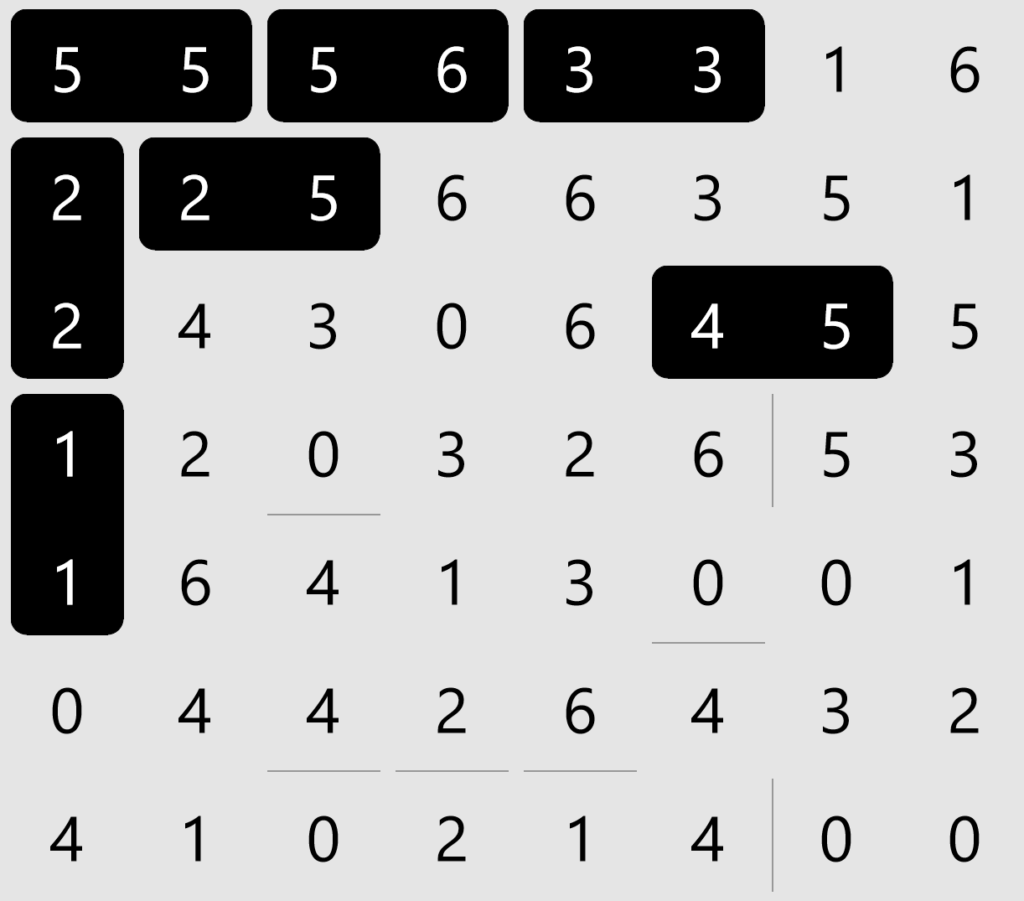
For iOS on the Apple App Store
In the Debian and Ubuntu package repositories (and it should be available in your own distribution’s repository, too)
And here it is for Windows again, but distributed through Chocolatey
If blogging is ever going to come back from its loss to social media, it’s going to have to be from going more social itself. By that I mean links between blogs, making it easier to surface sites to others. Not only directly, but by helping to raise each other’s Google rank, although I think time has shown that Google is a fickle friend to people producing material for the Web, any site prominence you gain can easily be wiped away the next time they change their algorithm. Bigsites naturally get traffic just from being established, and other sites try to become big by gaming their placement with hyper artificial SEO techniques. Meanwhile us littlesites have to succeed largely by being interesting and direct views, as well as what traffic we can gather through followers through RSS, social media, Patreon and other sources. And there’s no reason not to help each other out. We’re not in competition between us. Any cross link, wherever, strengthens us all.
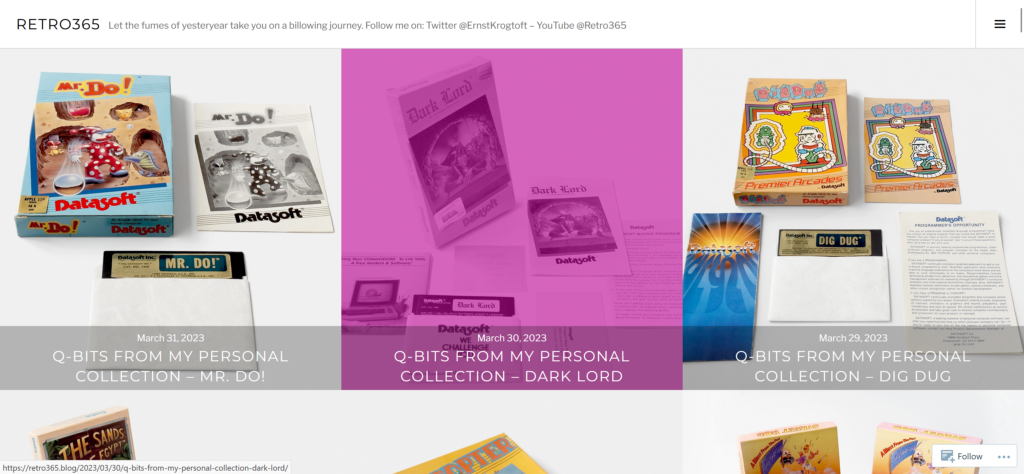
Here’s one from me. Retro365 has a vast collection of gaming media from the earlier days of home computing, and has been going for about three years now. They’ve got lots of demonstrated software on their Youtube channel. If you have an interest in learning about, or just seeing this stuff, they’ve got plenty for you.
Here’s a few choice items from their channel. There’s the classic CGA DOS game Paratrooper (the player doesn’t last long, only a minute):
Dungeon! for Apple II, published by TSR themselves in 1982 (32 minutes):
Oil’s Well for the Atari 400 and 800, a variant of the arcade game Anteater (8 minutes):
And a complete playthrough of comedy adventure game classic Sam & Max Hit the Road for PC (an hour and 47 minutes):
Retro365 blog, and on Youtube.
Now is the beginning of a fantastic journey!

Aah that’s a screen I haven’t seen in a long long time.
1982 saw the founding of the Apple II computer magazine-on-disk Softdisk. Soon after Softdisk Publishing produced disks for other home computers too. One of them, Big Blue Disk, has gone down in history as previous employer of some of the original principals of id Software, especially John Carmack and John Romero. But another of Softdisk’s legacies was their Commodore 64 product, Loadstar, probably the longest-lived Commodore 64 software publisher. They published C64 software from 1984 to 2007. And most, if not all, of it is available online!
Loadstar is yet another of those computer gaming stories that must be told, and I’m in a pretty good place to tell some of it, because I beta tested for them for many of those years, and sold programs to them as well. Yes, several of their releases bear the programmer name John “The Mad Gamer” Harris. You have to understand, this was long before the word gamer reached common usage. In fact, as someone who may have primacy over the use of the term, I hereby forbid its use by anyone with misogynistic, anti-trans or racist intent. It is so decreed, hey-nonny-nonny!
Loadstar was lots of fun. Every month they’d send you two disks in the mail with several new pieces of Commodore 64 software on it. Under the watchful eyes of Fender Tucker and Jeff Jones, and later on Dave Moorman, it’s not that they grew an empire of Commodore programs, but they did manage to sustain that platform for a small but avid userbase for far longer than you’d have thought possible.
I plan to start doing Loadstar reviews eventually, but in the meantime, you can try out some of the later issues of this important piece of computing history at the site linked below. Note that you’ll have to have a means of running C64 software to use them, of course. The emulator VICE is known to work well. And if you want to hear the words of Fender, Jeff or Dave yourself, all three are on Facebook.
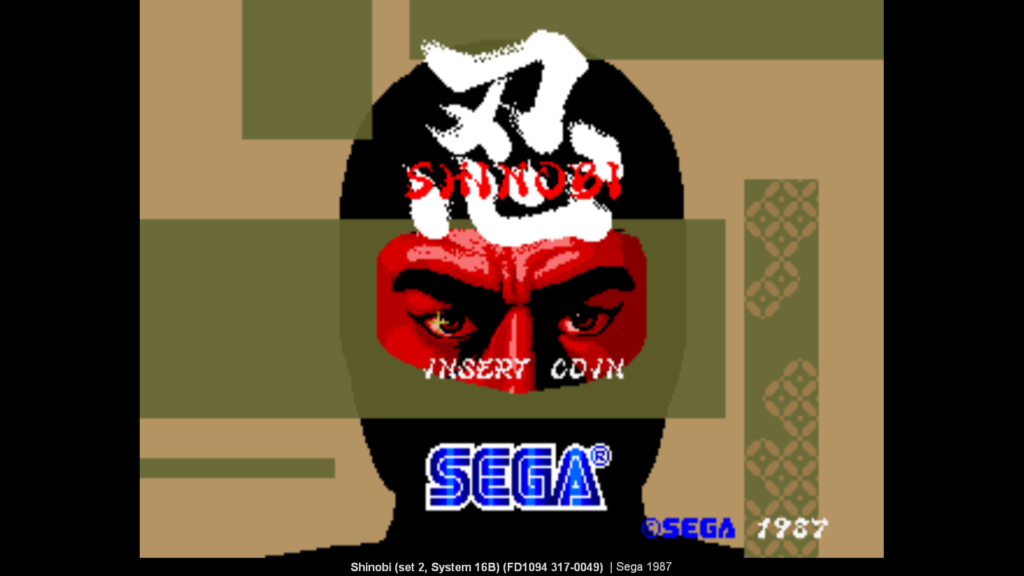
Did you ever look at your collection of legally-acquired of course MAME roms and thought to yourself, I wish I could turn the attract modes of these arcade games into a screensaver? I thought that, and then thought, I should try to create one!
Then I stopped myself, and thought once more: before creating one, let’s use Google to try to find out if someone’s already done it first, save myself a lot of work, wot wot.
As it turns out, someone has made one! Currently it’s only for Windows, sadly, and it requires the NET runtime. It also needs you to have a stock version of MAME already installed. But if MAME is set up so it knows your rompath, it’s smart enough to ask it where to find them. You can even determine the command-line options that MAME receives. It’s nice! Which is why I mention it here! You’re welcome!